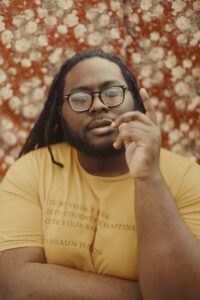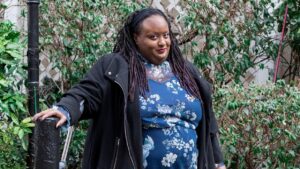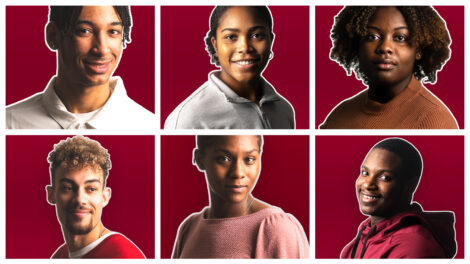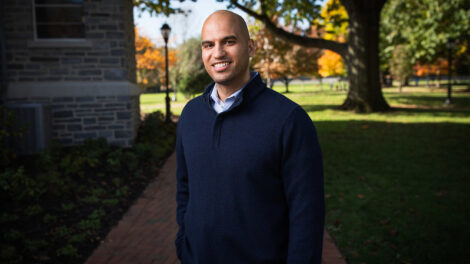Guest speakers inspire and educate by sharing personal stories and perspectives
By Shannon Sigafoos
On Feb. 25, the Office of Intercultural Development sponsored and hosted the “Black Heritage Month 2021 Keynote Panel: Anti-Blackness, Queerness, Fatphobia, and Disabilities,” which attracted several hundred enthusiastic (virtual) audience members. The panelists write and speak publicly on race, sexuality, gender, class, religion, disabilities, and other important topics they were eager to share.

Da’Shaun L. Harrison
Da’Shaun L. Harrison (they/them)
Who they are: Harrison is a Black trans writer, abolitionist, and community organizer in Atlanta. Harrison currently serves as managing editor of Wear Your Voice magazine and is the author of Belly of the Beast: The Politics of Anti-Fatness as Anti-Blackness.
Inspiring quote they gave the audience: “When I started to learn my identities as actual identities, and not just as things that just existed—when I learned my fatness as an actual identity, and I learned my disabilities as an actual identity, and I learned my trans and my queerness as an actual identity—I realized that there is so much more to this Black experience. I’ve learned the expansiveness of Blackness, even as it is limited—because we’re always moving through the very structure of anti-Blackness—there is so much that happens at the intersections that are most marginal in our communities right now. Once I started to recognize the fact that I was embodying this and I was living through these various marginalized identities within Blackness, I started to really understand myself as something more. And that I had the room, the right, and the ability to shape how I wanted to show up in the world.”

Ericka Hart
Ericka Hart (she/they)
Who they are: Hart is a Black, queer, non-binary femme and highly acclaimed speaker and award-winning sexuality educator with a master’s of education in human sexuality from Widener University. She is currently an adjunct faculty member at Widener University.
Inspiring quote they gave the audience: “Don’t be quiet. Don’t be silent. Don’t hold this stuff in. These traumas live in our bodies. Give it away, share about it, storytell … whatever feels good. Free write in your journal. Talk to people who will affirm your experiences and not question you, and not ask you for more evidence so that they can say, ‘Well, I feel like maybe that wasn’t what they were trying to do,’ or ‘I’ve been friends with them for a long time. I feel like they would never do that.’ You need to talk with people who are going to affirm what you’re saying and your experience. Even though it is terrifying—and it will always be terrifying—it always makes a difference when we say something.”
Imani Barbarin (she/her)

Imani Barbarian
Who they are: Barbarian is a graduate of Eastern University with a degree in creative writing and a minor in French from the Sorbonne. Barbarian writes from the perspective of a Black woman with cerebral palsy. She specializes in blogging, science fiction, and memoir.
Inspiring quote they gave the audience: “Statistically speaking, about 25% of all Black people have a disability. But when you look back on history, you’re like, ‘Where are they?’ Why are we talking about their disabilities even today, as we talk about different movements in social justice and abolition? Where are the disabled people? When you realize that they’re literally right there, you start to unpack what that means for you as a Black disabled person. You start to realize there’s a reason why we’re hiding these things about ourselves. And there’s more power in speaking about them and talking with each other, and being able to relate to one another. Being able to accept our identities is a way to accept your wholeness and to understand who you are. Don’t shy away from it. Because nothing about who you are is shameful.”




